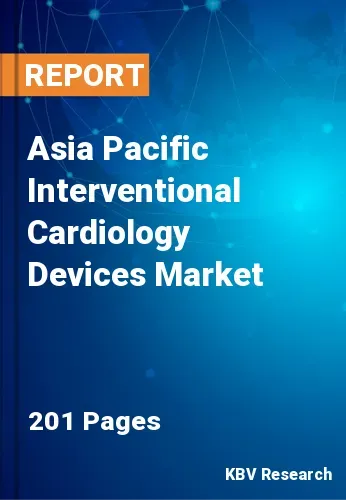The Asia Pacific Interventional Cardiology Devices Market would witness market growth of 8.1% CAGR during the forecast period (2023-2030). In the year 2021, the Asia Pacific market's volume surged to 15,586.5 thousand units, showcasing a growth of 7.9% (2019-2022).
Emerging nations like China, India have a high prevalence of cardiovascular diseases such as valvar defects and atrial stenosis, resulting in a high demand for interventional cardiology devices. Consequently, major medical device manufacturers are investing in R&D to manufacture and introduce innovative products to satisfy the growing demand in these nations. increasing collaboration among significant players to conduct multiple clinical trials on interventional devices. Increasing regulatory sanctions for these interventional devices manufactured by domestic players in developing nations will also drive the market forward.
The market is anticipated to increase due to technological developments, new products, supportive governmental regulations, and the rising prevalence of peripheral artery disease, carotid artery disease (CAD), and cardiac valve disease. Additionally, it is anticipated that the growing prevalence and awareness of minimally invasive surgeries (MIS) will fuel market expansion.
Asia Pacific countries are home to some of the world's largest populations. The number of potential patients drives the demand for interventional cardiology procedures and devices. Asia Pacific invests in training and education for healthcare professionals, including interventional cardiologists and nurses, to ensure proficiency in using interventional cardiology devices. According to a report published by the American College of Cardiology in April 2021, cardiovascular disease is Asia's leading cause of mortality. From 1990 to 2019, the number of cardiovascular-related fatalities in Asia increased from 5.6 million to 10.8 million. According to estimates, hypertension accounts for 16% of CAD, 21% of PVD, 24% of AMI, and 29% of strokes. The factors mentioned above will drive the regional market growth.
The China market dominated the Asia Pacific Interventional Cardiology Devices Market by Country in 2022 and would continue to be a dominant market till 2030; thereby, achieving a market value of $1,715.8 million by 2030. The Japan market is registering a CAGR of 7.4% during (2023 - 2030). Additionally, The India market would experience a CAGR of 8.8% during (2023 - 2030).
Based on End-use, the market is segmented into Hospitals & Clinics, Ambulatory Surgical Centers & Others. Based on Product, the market is segmented into Coronary Stents (Drug Eluting Stents, Bare Metal Stents, Bioabsorbable Stents), Accessory Devices (PTCA Guidewires, Diagnostic Catheters, PTCA Guiding Catheters, Introducer Sheaths), PTCA Balloon Catheters (Normal, Specialty, Drug Coated), Intravascular Imaging Catheters & Pressure Guidewires. Based on countries, the market is segmented into China, Japan, India, South Korea, Singapore, Malaysia, and Rest of Asia Pacific.
Free Valuable Insights: The Global Interventional Cardiology Devices Market is Predict to reach $21.9 Billion by 2030, at a CAGR of 7.4%
The market research report covers the analysis of key stakeholders of the market. Key companies profiled in the report include Abbott Laboratories, Boston Scientific Corporation, Terumo Corporation, Medtronic PLC, B. Braun Melsungen AG, Biotronik SE & Co. KG, Cardinal Health, Inc., Teleflex, Inc., Koninklijke Philips N.V., Alvimedica.
By End Use (Volume, Thousand Units, USD Million, 2019-2030)
By Product (Volume, Thousand Units, USD Million, 2019-2030)
By Country (Volume, Thousand Units, USD Million, 2019-2030)

Our team of dedicated experts can provide you with attractive expansion opportunities for your business.

